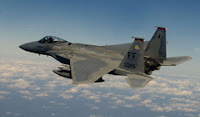Dave Deptula, a retired three-star general, knows the risks associated with flying older aircraft. While serving as the joint task force commander in 1998 and 1999 for Operation Northern Watch, Deptula flew 82 combat missions over Iraq. On one mission, as he was headed to a tanker to refuel, the master caution light came on, revealing a problem with the plane. His fuel gauge went to zero. Meanwhile, he was 500 miles away from his base. Fortunately, he was able to land safely.
“The insulation was so old it simply had deteriorated to the extent where it came off and all of the wiring shorted out,” Deptula recalled. “Those are the kinds of things that happen when airplanes get to certain ages.”
“The insulation was so old it simply had deteriorated to the extent where it came off and all of the wiring shorted out,” Deptula recalled. “Those are the kinds of things that happen when airplanes get to certain ages.”
Deptula’s aircraft was grounded for repairs, requiring another set of planes to travel from Kadena Air Force Base in Japan, on other side of the world. It’s not an isolated incident. In the years that followed, the Air Force was forced to ground its entire F-15 fleet in 2007 after one fighter disintegrated during a training mission in Missouri.
These frightening experiences demonstrate the consequences of an aging aviation force. Deptula worries that fiscal constraints imposed on the military — including more than $492 billion of mandatory defense cuts on the horizon — will result in future challenges.
“I hear people talk about, well you know, the U.S. military spends more money than the next 17 nations combined,” Deptula said. “Well, the next 17 nations combined are not committed to maintaining peace and stability around the world. We are.”
The Heritage Foundation featured Deptula’s story as a part of a three-part series highlighting the risks of budget cuts to the nation’s military. The first part told the story of Col. Kerry Kachejian, an Army Reserve engineer, who relied on sport-utility vehicles during his service in Iraq.

No comments:
Post a Comment